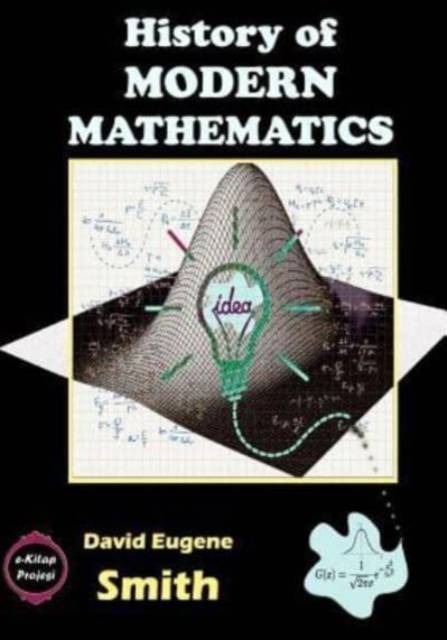
- Retrait gratuit dans votre magasin Club
- 7.000.000 titres dans notre catalogue
- Payer en toute sécurité
- Toujours un magasin près de chez vous
- Retrait gratuit dans votre magasin Club
- 7.000.000 titres dans notre catalogue
- Payer en toute sécurité
- Toujours un magasin près de chez vous
Description
This little work was published as a chapter in Merriman and Woodward's Higher Mathematics. It was written before the numerous surveys of the development of science in the past hundred years, which appeared at the close of the nineteenth century, and it therefore had more reason for being then than now, save as it can now call attention, to these later contributions. The conditions under which it was published limited it to such a small compass that it could do no more than present a list of the most prominent names in connection with a few important topics. Since it is necessary to use the same plates in this edition, simply adding a few new pages, the body of the work remains substantially as it first appeared. The book therefore makes no claim to being history, but stands simply as an outline of the prominent movements in mathematics, presenting a few of the leading names, and calling attention to some of the bibliography of the subject.It need hardly be said that the field of mathematics is now so extensive that no one can longer pretend to cover it, least of all the specialist in any one department. Furthermore it takes a century or more to weigh men and their discoveries, thus making the judgment of contemporaries often quite worthless. In spite of these facts, however, it is hoped that these pages will serve a good purpose by offering a point of departure to students desiring to investigate the movements of the past hundred years. The bibliography in the foot-notes and in Articles 19 and 20 will serve at least to open the door, and this in itself is a sufficient excuse for a work of this nature.In considering the history of modern mathematics two questions at once arise: (1) what limitations shall be placed upon the term Mathematics; (2) what force shall be assigned to the word Modern? In other words, how shall ModernMathematics be defined?In these pages the term Mathematics will be limited to the domain of pure science. Questions of the applications of the various branches will be considered only incidentally. Such great contributions as those of Newton in the realm of mathematical physics, of Laplace in celestial mechanics, of Lagrange and Cauchy in the wave theory, and of Poisson, Fourier, and Bessel in the theory of heat, belong rather to the field of applications.In particular, in the domain of numbers reference will be made to certain of the contributions to the general theory, to the men who have placed the study of irrational and transcendent numbers upon a scientific foundation, and to those who have developed the modern theory of complex numbers and its elaborationin the field of quaternions and Ausdehnungslehre. In the theory of equations the names of some of the leading investigators will be mentioned, together with a brief statement of the results which they secured. The impossibility of solving the quintic will lead to a consideration of the names of the founders of the group theory and of the doctrine of determinants. This phase of higher algebra will be followed by the theory of forms, or quantics. The later development of the calculus, leading to differential equations and the theory of functions, will complete the algebraic side, save for a brief reference to the theory of probabilities.In the domain of geometry some of the contributors to the later development of the analytic and synthetic fields will be mentioned, together with the most noteworthy results of their labors. Had the author's space not been so strictly limited he would have given lists of those who have worked in other important lines, but the topics considered have been thought to have the best right to prominent place under any reasonable definition of Mathematics
Spécifications
Parties prenantes
- Auteur(s) :
- Editeur:
Contenu
- Nombre de pages :
- 70
- Langue:
- Anglais
Caractéristiques
- EAN:
- 9781505489569
- Date de parution :
- 11-12-14
- Format:
- Livre broché
- Format numérique:
- Trade paperback (VS)
- Dimensions :
- 178 mm x 254 mm
- Poids :
- 140 g







